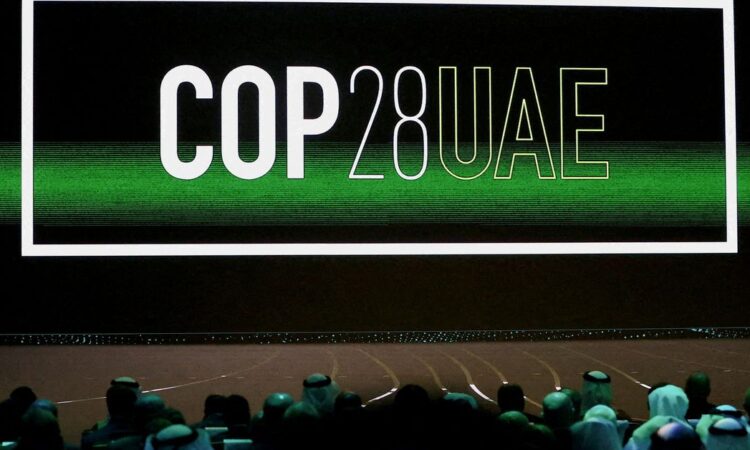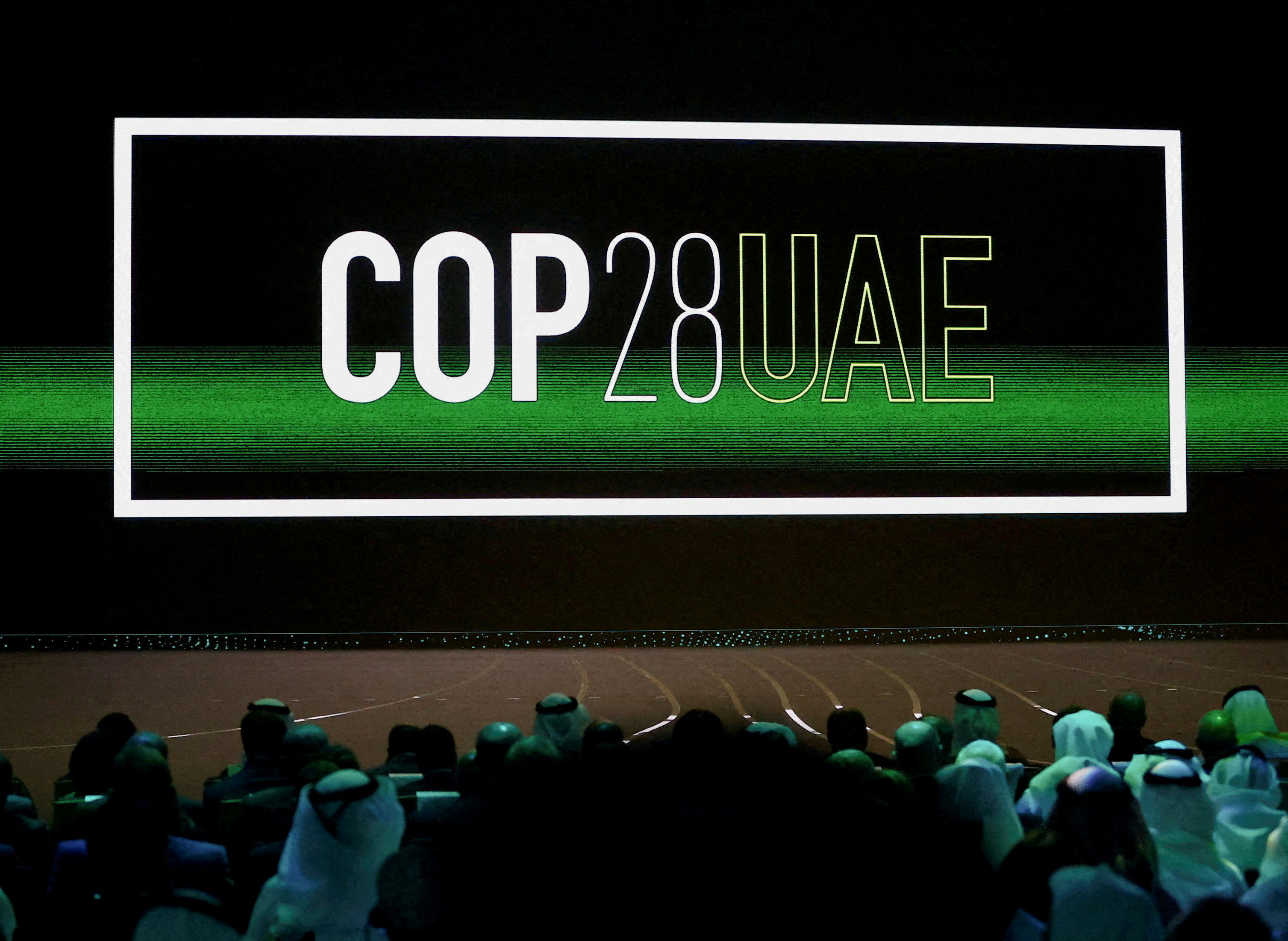

‘Cop28 UAE’ logo is displayed on the screen during the opening ceremony of Abu Dhabi Sustainability Week (ADSW) under the theme of ‘United on Climate Action Toward COP28’, in Abu Dhabi, UAE, January 16, 2023. REUTERS/Rula Rouhana/File Photo Acquire Licensing Rights
BRUSSELS, Oct 16 (Reuters) – European Union countries’ climate ministers meet on Monday to decide the bloc’s negotiating position for this year’s COP28 summit – but they are still split over some key issues, like how hard to push for a global deal to phase out fossil fuels.
The EU is typically one of the most ambitious negotiators at the annual United Nations climate talks, where nearly 200 countries negotiate efforts to fight global warming. This year’s COP28 conference begins on Nov. 30 in Dubai.
A central decision will be whether countries at the COP agree for the first time to phase out fossil fuels. Burning coal, oil and gas produces greenhouse gases that are the main cause of climate change.
Around 10 of the EU’s 27 member countries including Denmark, France, Germany, Ireland, the Netherlands and Slovenia want the bloc to demand a phase out of all fossil fuels, EU diplomats told Reuters.
A similar number – including the Czech Republic, Hungary, Italy, Malta, Poland and Slovakia – are more cautious.
They want a phase-out only of “unabated” fossil fuels, leaving a window for countries to keep burning coal, gas and oil if they use technology to “abate” – meaning capture – the resulting emissions.
EU countries must agree their negotiating position unanimously, meaning one government can block it.
The split reflects simmering global tensions. EU countries opposing a full phase-out include poorer nations who fear the impact of weaning their economies off fossil fuels.
Fossil fuel producers and consumers – some of whom, like Saudi Arabia, have blocked attempts to agree a phase-out in recent meetings including this year’s G20 summit – are expected to raise similar resistance at the COP28 summit.
A draft of the EU’s negotiating position, seen by Reuters, would call for a “global phase-out of [unabated] fossil fuels and a peak in their consumption already in the near term”.
The brackets around “unabated” indicate EU countries have not yet agreed on the word.
Other major emitters are watching and some diplomats said a weakened stance from the EU – the world’s third-biggest economy – could kill off hopes of an ambitious COP28 deal.
“If the EU fails to do so, how can we expect an ambitious (COP28) outcome?” one EU diplomat said.
Fossil fuel subsidies are another sore point, with wealthy western nations including France and the Netherlands seeking an EU call to phase them out by 2025. Fossil fuel-reliant economies including Poland do not want a date.
Countries will also decide whether to announce publicly that the EU expects to overshoot its legally-binding target to slash net greenhouse gas emissions 55% by 2030, as a result of the CO2-cutting policies the EU passed in the last two years.
Reporting by Kate Abnett, editing by Jan Strupczewski and Emelia Sithole-Matarise
Our Standards: The Thomson Reuters Trust Principles.






